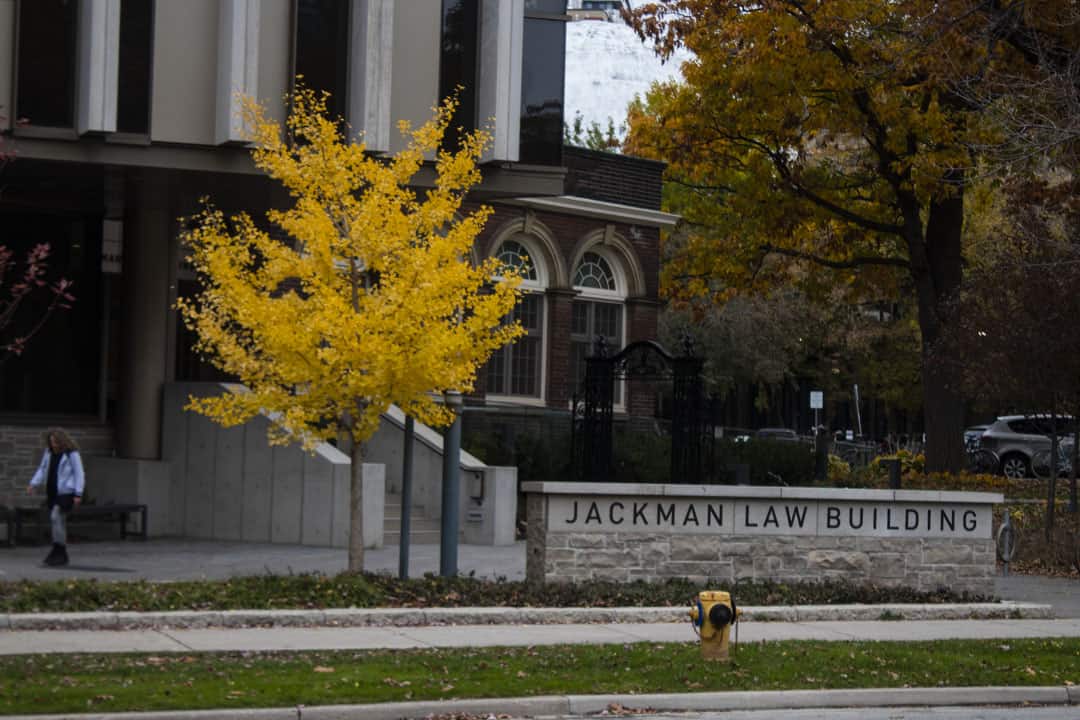On January 20, a group of student organizations — including the University of Toronto Mississauga Students’ Union, the Scarborough Campus Students’ Union, and the University of Toronto Graduate Students’ Union — held a panel discussion on the risks of the University-Mandated Leave of Absence Policy (UMLAP). The policy, which has been controversial since its inception and is currently under review, allows the university to place on leave students that it deemed to be a danger to themselves or others.
The panel featured four speakers: Lawyer Karen Bower; Courtney Joly-Lowdermilk, associate director of strategic initiatives at the Center for Psychiatric Rehabilitation at Boston University; Lawyer Dianne Wintermute from the ARCH Disability Law Centre; and Nkem Ogbonna, a U of T alum and researcher for Students for Barrier-Free Access. The event focused on the speakers’ experiences related to involuntary leave policies in the United States.
Background
Since the implementation of the UMLAP in 2018, members of the U of T community, as well as the Ontario Human Rights Commission (OHRC), have criticized it repeatedly for giving the university too much power in making decisions about students’ mental health.
The university has repeatedly defended itself against the OHRC’s criticisms, arguing that the policy does adhere to the Ontario Human Rights Code. Vice-Provost, Students Sandy Welsh has also described the policy as “compassionate” since it factors in mental health considerations outside of the Academic Code of Conduct.
As of the 2021–2022 academic year, 11 students have been placed on university-mandated leave since the policy’s inception, and the university is continuing to review the UMLAP with input from students, staff, and community members.
Panel discussions
In an interview with The Varsity, Alisha Krishna, a student in the Faculty of Law who is affiliated with the U of T Law Union, emphasized that the panel came together out of a desire to continue exploring alternatives to the UMLAP while the university is still reviewing it. Krishna noted that although organizing during the pandemic has been somewhat challenging, it has made it possible to hold this panel, which features guests living in the United States. The panel was conducted over Zoom and hosted by Krishna.
Karen Bower, one of the speakers at the panel, discussed the ways in which the law presents challenges to students seeking accommodations. Bower, an American attorney who represents students with mental illness in higher education, spoke about some of the laws in the United States that grant powers to universities to place students on a leave of absence.
She mentioned that there is a concern that if the university is “assessing [a] direct threat, [it] might respond based on fear, prejudice, or stereotypes about individuals with mental illness, and not look at [a] really individualized assessment based on a reasonable objective medical criteria.”
Joly-Lowdermilk discussed the effects of leave policies on students and alternatives available to the university. She is known for co-authoring a guide meant to support students taking health-promoted leaves. During the panel discussion, she said that it is really important to “[engage] students… in that collective, collaborative decision-making process.”
She acknowledged that, “for some students, it’s alarming to hear the idea of a leave… [but it] gives us hope and agency if it’s a health-promoting option for students to consider.”
Joly-Lowdermilk also helped create NITEO at Boston University, a semester-long program that supports students in developing tools to cope with mental illness. She described the program as a “healing space to practice and maintain skills that [the students] find important.” She said that it takes 20 hours a week and allows students placed on leave to return to studies prepared. The program is focused around the student’s choices.
Going forward
In an interview with The Varsity, Krishna noted that conversations on university-mandated leave policies are now occurring at universities in the United States, as mentioned by the international speakers present at the event.
Krishna said that some of the ideas presented at the panel would require an “ideological shift” to be implemented, but that they are feasible. Krishna concluded by bringing up a speaker’s comment that involuntary leave policies are a “public health issue” and added that “when people are in trouble, you stop the trouble.”


